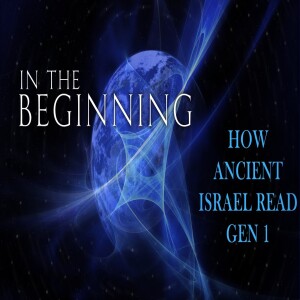

In the Beginning - How Did Ancient Israel Read Gen 1?
Understanding Genesis Through Ancient Eyes
The teaching explores how ancient Israelites understood Genesis 1, contrasting their viewpoint with modern interpretations influenced by science and culture. It emphasizes the importance of context when reading the Bible, cautioning against imposing modern perspectives on ancient texts. According to Tyler Rosenquist's meme, context is defined as "historical facts that keep my mind from masquerading around acting like the Holy Spirit." Matthew Vander Els encourages studying the history, language, and culture of ancient Israel to grasp their faith and mindset.
The Practical Faith of Ancient IsraelAncient Israel's faith was practical, with scripture serving as a testimony of God and a guide for daily life, without the need for extensive commentary. The teaching uses the example of the serpent in Genesis to illustrate the importance of context. Rather than assuming the snake had legs before the fall, understanding Near Eastern portrayals of snakes as deadly when striking—raising up from their belly—offers a different perspective. This interpretation aligns with the idea of the snake's potential for lethal consequences being diminished, rather than a literal loss of legs.
Science vs. TestimonyThe teaching addresses the tension between biblical accounts and modern science, noting that science is constantly evolving. It suggests that the Bible should not be treated as a science book but as a testimony of God written in a language and culture that ancient Israelites would understand. Attempting to align the Bible with modern science can distort its message and miss its intended meaning.
The Significance of "Barah"In ancient Hebrew, the word "barah," often translated as "create," is used nearly 50 times in the scripture, and is always associated with God. Scholars like John Walton propose that "barah" should be understood as "to make functional" rather than simply "to create." This perspective emphasizes God's role in giving function and responsibility to every aspect of creation, rather than just speaking things into existence. Genesis 1 is about God providing functionality and responsibility for every aspect of creation. The state of the earth in Genesis 1:2—formless and void—supports the idea of God renovating and making functional what already existed.
Functionality Over MaterialityThe teaching introduces the concept of functional ontology versus material ontology. In the ancient world, an item's function was more important than its material status. A chair, for example, becomes a chair when it is used for sitting. Similarly, a company functions when it starts doing business. This concept suggests that Genesis 1 is about God's greatness as demonstrated through his design and function, rather than just material creation.
A New CreationThe concept of creation is linked to function, drawing a parallel to spiritual rebirth. Before accepting Messiah, individuals are without function or purpose; after accepting Messiah, they become a new creation with function and purpose in God's kingdom. This new function is exemplified by being an ambassador for Christ.
The Six Days of Creation Through a Functional Lens- Day 1: God separates light from darkness, organizing light for a function, calling light "day" and darkness "night."
- Day 2: God creates the firmament, dividing the waters above and below.
- Day 3: God gathers the waters, dry land appears, and vegetation is brought forth, establishing the function of earth and sea.
- Day 4: God creates the sun, moon, and stars to serve as signs and seasons, providing a calendar and function for these celestial bodies.
- Day 5: God creates birds and sea creatures, commanding them to be fruitful and multiply, emphasizing function.
- Day 6: God creates beasts and livestock and creates man and woman in his image, with the function to be fruitful and multiply.
Isaiah 45:7 is referenced to discuss God's creation of both good and evil, with "evil" interpreted as calamity or difficulty. The teaching suggests that God gives function to darkness and evil, using them for his purposes. This highlights God's sovereignty and ability to make everything functional within his creation.
Shabbat and Resting in God's CreationThe seventh day, Shabbat, is presented as a day when God rested in his creation, setting an example for humans to rest and honor God. Just as a president sits in his office after campaigning, God sat with his creation and affirmed that it was good. Keeping Shabbat involves resting and focusing on God, recognizing his role in creation.
"Reshit" - First FruitsThe Hebrew word "reshit," meaning "in the beginning," is also the word for "first fruits." Connecting Genesis 1 to the concept of first fruits suggests that God used the first fruits to give function to all creation. This is further linked to John 1:1, which states that all things were made through the Word (Messiah), emphasizing Messiah's role in bringing functionality to God's creation.
Application for Everyday Life- Contextual Bible Study: Always consider the historical and cultural context when interpreting scripture.
- Recognize Your Function: Understand that as a believer in Messiah, you have a specific function and purpose in God's kingdom.
- Live Out Your Purpose: Strive to fulfill your role as an ambassador for Christ, sharing the message of reconciliation.
- Honor God's Creation: Acknowledge God's design and functionality in every aspect of creation.
- Observe Shabbat: Set aside time each week to rest, reflect on God's creation, and give him honor and glory.
To find more Bible Teachings, click the link.
References- Genesis 1:1
- Genesis 1:2
- Genesis 1:24
- Isaiah 45:7
- Isaiah 49:4
- 1 Corinthians 15
- 2 Corinthians 5:17
- John 1:1
- The Lost World of Genesis 1 by John Walton
- Ancient Near Eastern Thought and the Old Testament by John Walton
- The Bible
Note: This article contains affiliate links.
More Episodes
All Episodes>>You may also like
Create Your Podcast In Minutes
- Full-featured podcast site
- Unlimited storage and bandwidth
- Comprehensive podcast stats
- Distribute to Apple Podcasts, Spotify, and more
- Make money with your podcast













